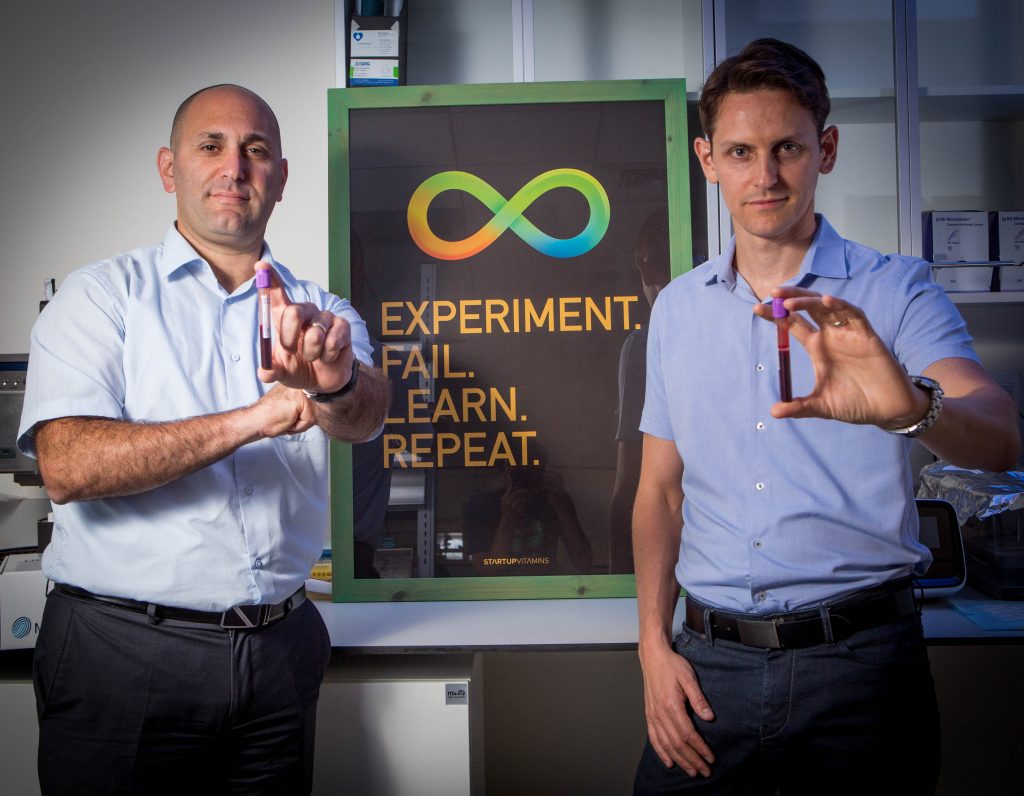Israeli medical diagnostics startup MeMed Diagnostics has received a CE Mark clearance for its pioneering diagnostic test MeMed BV and point-of-need platform MeMed Key.
Founded in 2009, MeMed has built a diagnostic tool for distinguishing between bacterial and viral infections like the coronavirus. The company is now also developing a diagnostics test for early detection of viruses and the prediction of potential patient deterioration.
In addition to the CE Mark in Europe, MeMed has received AMAR clearance from the Israeli Ministry of Health to market and sell MeMed BV and MeMed Key.
MeMed BV measures host-immune response proteins from a small sample of blood and applies machine learning to accurately distinguish between bacterial and viral infections.
“MeMed is about decoding the signals of the host-immune response to help physicians make better informed decisions that improve patients’ lives,” said Eran Eden, MeMed’s CEO and co-founder. “The CE-IVD mark brings us closer to impacting patients around the globe.
By relying on the immune response, rather than direct pathogen detection, MeMed BV complements conventional technologies and allows rapid and accurate diagnosis even when the infection site is inaccessible.
The company’s MeMed BV test has been validated by an unprecedented level of high-quality real-world data from over 15,000 patients and multinational, double-blind clinical studies, published in high profile peer-reviewed journals.
Sign up for our free weekly newsletter
SubscribeMeMed Key is a technology platform that allows highly sensitive and rapid measurements of multiple proteins at the point of need. More specifically, it runs MeMed BV within 15 minutes.
The CE Mark clearance of our MeMed Key instrument marks an exciting milestone that builds on years of development work,” said Kfir Oved, MeMed’s co-founder, CTO and chairman. “The MeMed Key platform is not only paving the way for wide implementation of the MeMed BV test, but also opens the way to highly sensitive, rapid and multiplexed protein measurements at the point of care, which, so far, was mainly available using expensive central lab equipment.”
Oved said leveraging the MeMed Key platform will allow the company to expand its host-response test pipeline to other indications outside infectious diseases and further efforts to continue addressing big clinical dilemmas and areas of unmet need.
“We believe MeMed BV™ and MeMed Key™ will be a major addition to the clinical arsenal, improving outcomes for patients with acute infections, lowering healthcare costs and combating antibiotic resistance,” said Eden.
Professor Louis Bont, MD, PhD, Division of Pediatric Immunology and Infectious Disease at the University Medical Center, Utrecht in the Netherlands, said that while traditional diagnostics focus on identifying the disease-causing viruses or bacteria, this technology works differently. It identifies whether the patient’s immune system is actively fighting a bacterial or viral infection, he noted.
“Our international, double-blind study conducted and published in Lancet ID1 and BMJ Paediatrics5, as well as studies by others, showed that this host-response solution enables more accurate diagnoses compared to today’s routine tests and will meaningfully aid clinicians in improving antibiotic treatment decisions. This diagnostic is an essential step in our collaborative fight against antimicrobial resistance,” he said.
Related posts

Israeli AI Safety Tool Among TIME’S Best Inventions For 2024

Editors’ & Readers’ Choice: 10 Favorite NoCamels Articles

TAU Team Discovers Mechanism To Eliminate Cancerous Tumors




Facebook comments